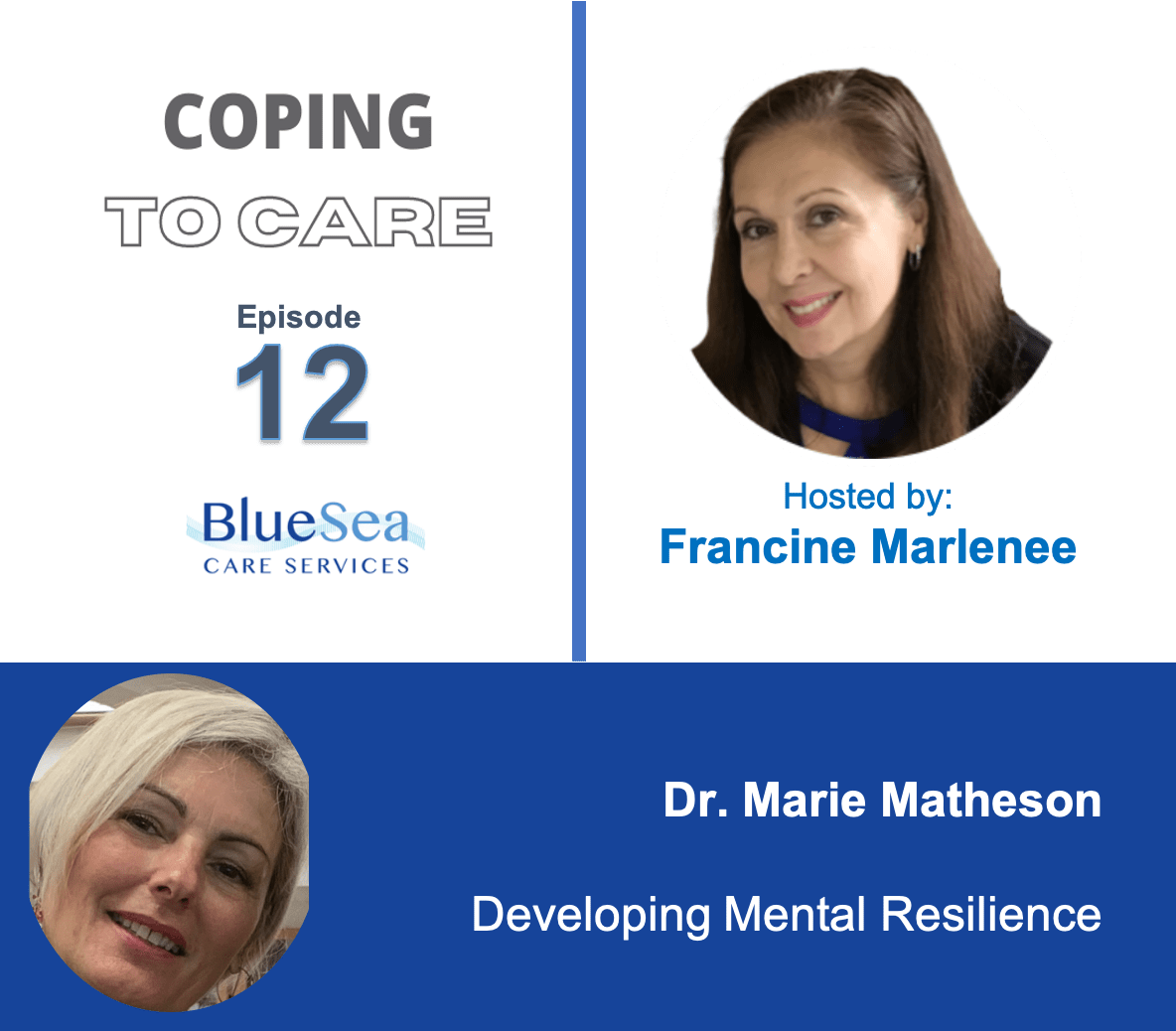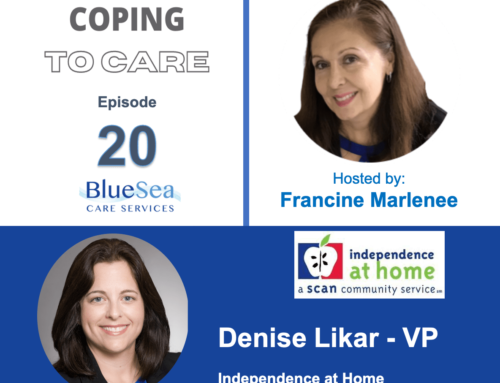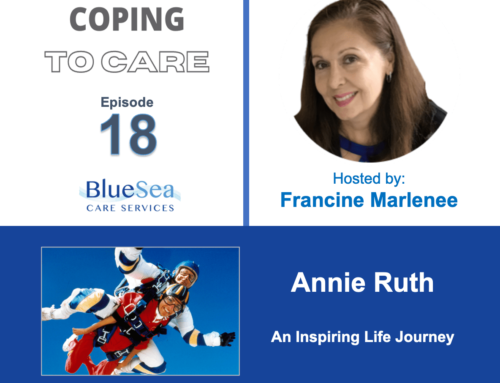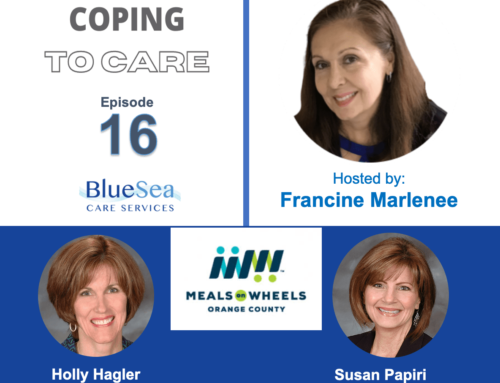When in times of crisis, it is essential to remain empowered mentally. We speak with Dr. Marie Matheson, an experienced doctor with a demonstrated history of working in the mental health industry. She specializes in cognitive behavioral therapy, group and family therapy, clinical supervision, and psychological assessments. Dr. Matheson is also a well-known artist in Malibu and worked with the resiliency program to assist with art for recovery after the fires.
Dr. Matheson shares the important things you can do to maintain your mental health for senior mental care and a state of resilience.
Strategies for Health When in Stress
Dr. Matheson states that whenever there is a challenge, it is essential to have a good grounding.
Focusing on health through exercise, nutrition, meditation, and by maintaining your state of health is essential.
When there is an external problem, it is then easier to solve the issue. Relying on healthy habits and maintenance creates continuous balance.
It is important to look at the cognitive level as well as the physical level when focusing on the maintenance.
She also stated that following a passion, such as an art, is essential. Each human is creative and the arts can help us. Workshops, hobbies, or other activities can help our brainwaves to readjust during a time of stress. After a certain amount of time, it automatically brings the pressure down when stressed and balances our emotions and thought processes for a positive spiral, offering support for health and senior mental care.
When there are issues such as Covid-19, it is then easier to re-orient our life and find new interests outside of work so we can re-center.
Identifying Depression
Dr. Matheson states that depression usually begins with a loss. This depletes resources and causes one to withdraw. When one moves into this state, it is a large sign of depression. Loss of social interaction to loss of energy can be looked at to identify issues.
She states that it’s important to look at a person to see what they were going through. Using Zoom when physical interaction isn’t possible is essential for interactivity. This is also important because of the required masks that may interfere with seeing how someone is.
Seeing a person who is thinking too much of the past or being anxious about the future is easier to identify when looking at the person and seeing the body reactions relating to their expressions.
What Is Reframing?
Dr. Matheson states that we are born with genetics that creates specific responses. Values and beliefs from family and environment then add to this. This conditions one to see the world a certain way and to create a subjective response and perspective.
If learning is a positive mechanism and coping, then the world works for you. If you develop a perspective that is harmful to your health, then it causes the opposite response and that’s when we need to change it.
We believe a certain reality and through therapy, it explains a different way to see the world. Finding a different way to see, or re-frame, the world creates a different reality. This comes from questioning and seeing if there is a way to see perspectives from an alternative ideal.
Reframing requires a branch to move from the old way to a new way that is healthier. The branch requires overcoming fear and practice a new perspective until it becomes a healthier reality, reinforced by positive outcomes for mental health and senior mental care.
Understanding the Phases of Grief
The classic stages include 5 steps that take place.
1. Denial. This can’t happen to me and it’s not possible. This creates shock because reality is so big that it is hard to take in. We can’t accept reality so we deny it.
2. Anger. This is when someone comes into reality. This creates pain, fear, and the belief that it isn’t fair. Dr. Matheson speaks of her own experience of losing her home in 1993. She saw that the community became angry from helplessness, sadness, and not knowing what to do, so they projected on others such as the city, the fire department, and others who may or may not have been responsible for the condition.
3. Bargaining. At this stage, you will try to get back what you have lost. Someone will state that “I will do whatever you want” in order to change the conditions. While someone goes through this, it will not provide acceptance and ultimately fails.
4. Depression. When bargaining doesn’t work, it can become too overwhelming. This leads to withdrawal from society and the external environment, specifically because it is too hard to bear the burden that you are carrying. The instinct at this stage is to close oneself off instead of seeking help.
5. Coping and Acceptance. At this stage, you can change the outcome to positive or negative. There is an understanding that you can’t change what was lost but can use tools to face what you have lost. For instance, humor can help when dealing with the situation. You can then put your life together and put together the future.
Dr. Matheson relayed the story of how she coped with the loss of her home in a fire, including losing five years of research and work. She tried to cope by assisting the community and working with them. However, she found that she went back into a state of PTSD, starting with nightmares and then eventually having issues with her arm as she tried to “lift the burden” of others coping.
This led to the need to focus back on prevention and balancing to move away from the PTSD and to further cope with the trauma which occurred.
When Should You Seek Help for Depression?
Dr. Matheson says that when people begin to withdraw from activities, this is a key sign of depression. If someone stops engaging socially or with an activity, such as art, then it is a sign that depression is beginning to take place and it’s time to seek help.
She also states that speaking and realizing what someone is saying is important. Someone will hint at their state and their struggles. For senior mental care, such as those that are dealing with dementia, it is essential to listen and pay attention. Most are aware of the issue but begin to move into fear as a response because they are no longer in control.
For instance, they may stop eating, sleeping, or lose some of the expressions that they once had. It’s important to acknowledge the signs, recognize why, and start to listen to aging parents.
For elders, accepting age, grieving, and understanding that there is a change in your world becomes a primary part of healing when at this stage.






